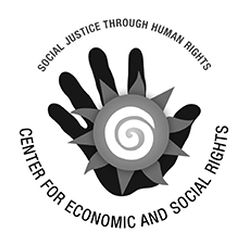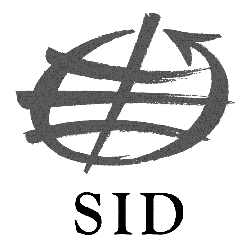The 2030 Agenda and its Sustainable Development Goals (SDGs) adopted unanimously by UN Member States in September 2015 comprehensively address major global problems, such as accelerating global warming, growing inequalities, poverty, gender-based discrimination, violence and conflict, and the structural flaws of the global economic and financial systems. The 2030 Agenda is universal. No country can deem itself to be sustainably developed and having already done its part to meet the SDGs.
CSOs and social movements, while continuing to advance transformative agendas far more ambitious than the 2030 Agenda, play a key role as independent watchdogs in holding governments, international organizations, International Financial Institutions, and Multilateral Development Banks as well as transnational corporations accountable for their contributions to the implementation of the 2030 Agenda. This is particularly relevant with regard to the rich and powerful actors in the global system, given their economic influence and political weight in international decision making.
Severe obstacles to the implementation of the 2030 Agenda have already been identified by these watchdogs. For too long, economic development has been shaped by a widespread acceptance of neoliberal policies pushed by the international financial institutions and corporate think tanks as the ‘only alternative’. Too often, inequitable trade, investment, and monetary rules and policies have exacerbated poverty and inequalities between and within countries. Economic policies oriented to growth at all costs provide the drive to exploit nature, rely on fossil fuels and deplete biodiversity. Countries compete in a race to the bottom, offering lower taxes and diluted labour rights to attract investment with no corresponding obligation to provide decent work. The power of investors and big corporations is continually strengthened through deregulation, trade and financial liberalization, tax cuts and exemptions, reduced labour standards, and the privatization of public goods. These policies have weakened the role of the State and its ability to fulfill its human rights and sustainable development commitments.
The Reflection Group on the 2030 Agenda for Sustainable Development (www.reflectiongroup.org), created in 2011 to offer independent analysis and suggestions to the international debate, decided in 2015 to regularly watch and assess the implementation of the new Agenda and the structural obstacles in its realization, and to present its findings in an annual “Spotlight Report”. The report is supported by a broad range of CSOs and trade unions, and based on the experiences and reports by national and regional groups and coalitions from all parts of the world.
After the successful launch of the pilot report 2016, this 2017 edition focuses on privatization, partnerships, corporate capture and their impact on sustainability and inequality. The articles and textboxes cover all sectors of the 2030 Agenda and the SDGs (and beyond), and reflect the rich geographic and cultural diversity of their authors. But what all contributions have in common is their plea to reclaim public policy space and use it to take bold measures to realize human rights, increase public finance, to regulate or reject PPPs, and to strengthen participatory and democratic governance structures at all levels. These are indispensable prerequisites to achieve the SDGs and to turn the vision of the transformation of our world, as proclaimed in the title of the 2030 Agenda, into reality.
Barbara Adams and Jens Martens, Global Policy Forum (GPF)
Chee Yoke Ling, Third World Network (TWN)
Gita Sen, Development Alternatives with Women for a New Era (DAWN)
Kate Donald, Center for Economic and Social Rights (CESR)
Roberto Bissio, Social Watch
Sandra Vermuyten, Public Services International (PSI)
Stefano Prato, Society for International Development (SID)
Ziad Abdel Samad, Arab NGO Network for Development (ANND)








